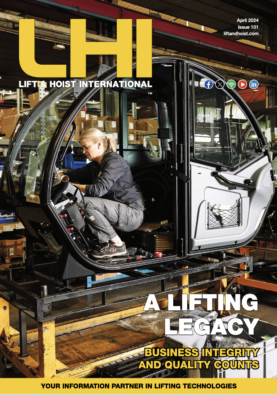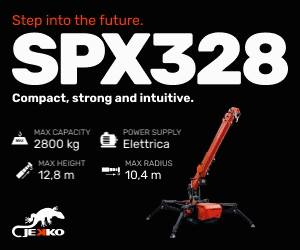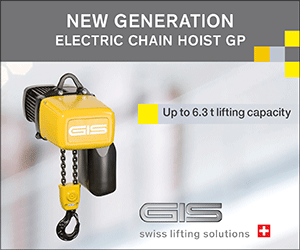Crane Operator Certification on the Rise
The National Commission for the Certification of Crane Operators (NCCCO) reports that 2005 was its busiest year ever for the number of exams administered. As many as 15,000 mobile crane operators were tested last year, a three-fold increase over the previous year. Additionally, 1,000 tower crane operators have been certified since these programs were established in July 2004.
According to Graham Brent, executive director, California's 2005 requirement for crane operators to be certified helped fuel the growth, although it is not solely responsible for the increase. “Interest is up nationwide among employers and state legislators,” he said.
By mid-2007, as many as 15 states are expected to require some type of certification or licensing. Utah is one of the most recent states to enact such legislation with a bill that was signed in March. Effective July 1, 2007, any crane operator on a commercial construction project in Utah must be certified by NCCCO or an equivalent entity. Anyone found in violation will be guilty of a Class A misdemeanor. Other states making similar moves include Minnesota, Nevada, and Pennsylvania.
As for a national requirement, crane operator certification mandated by the federal government is still a number of years off. The proposed standard for cranes and derricks, which is part of 29 CFR 1926, Subpart N, and includes language requiring crane operator certification, is not anticipated for another 7 to 8 years (see “C-DAC Still Years Away”). Once enacted, most aspects of the standard will call for immediate compliance. However, an additional four years will be permitted for compliance with the crane operator certification portion.
“The ongoing interest among states to enact their own legislation is a function of the length of time expected before a national requirement exists. States just can't afford to wait,” says Brent. Meanwhile, the recent adoption of ISO 17024 (General Requirements for Bodies Operating Certification Systems of Persons) by ASTM International, simplifies the process for states that prefer a domestic standard for accreditation.
Employers, associations, and organizations, such as NCCCO, that become accredited under ISO 17024 will now also meet the new ANSI standard. NCCCO plans to seek accreditation from ANSI this year. Additionally, NCCCO's national crane operator certification program was recently re-accredited by the National Commission for Certifying Agencies (NCCA) for a further five years. It was first accredited in 1998.
Certification Program Updates
NCCCO is in the process of revising the crane choices available for the mobile crane program. Replacing the American 5300 on the lattice boom crawler crane exam is the American HC80, while the Broderson RT300 2BO replaces the Grove RT59S on the small telescopic crane exam. The changes are effective July 1, 2006, and all tests scheduled after that date will feature the new exams.
From that date, the complete list of options available to candidates taking CCO written exams will be: the Manitex 1768 and Broderson RT300 2BO in the small telescopic crane (TSS) category; the Link Belt RTC 8050 and Grove TMS 750B in the large telescopic crane (TLL) category; the Manitowoc 777T and Link Belt HC238H in the lattice boom truck crane (LBT) category; and the Manitowoc 888 and American HC80 in the lattice boom crawler cranes (LBC) category.










